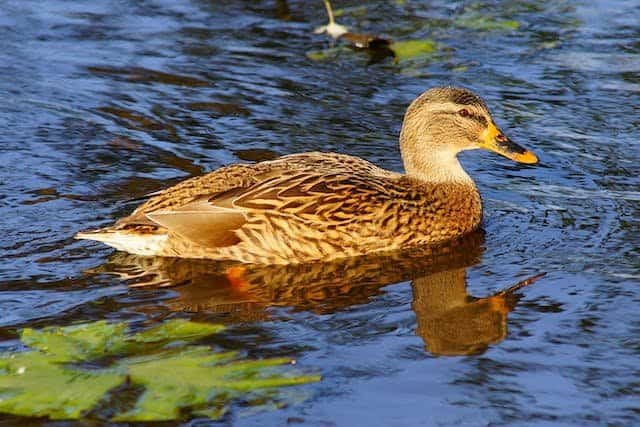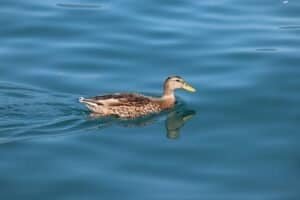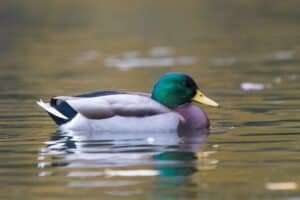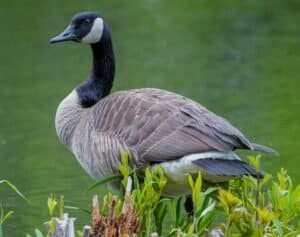Have you ever wondered what do ducks eat in the water? Ducks are a common sight in many bodies of water, from lakes and rivers to backyard ponds. These charming birds are known for their distinctive quacking sound and their endearing waddling walk.
As omnivores, ducks have a diverse diet that includes both plants and animals. In fact, they are opportunistic feeders, meaning they will eat whatever is available. So when it comes to what ducks eat in the water, the answer can vary depending on their location and the time of year.
Some common items that ducks may find and consume in the water include aquatic plants like duckweed, algae, and pondweed. These plants provide essential nutrients for the ducks and are their main source of food during the warmer months.
Ducks may also feast on aquatic insects such as dragonflies, water beetles, and mosquito larvae. These insects not only provide a protein-rich meal for the ducks but also help control their populations in the water.
Aside from plants and insects, ducks may also consume small fish, snails, and crustaceans while in the water. These animals are a valuable source of protein and other essential nutrients for ducks, especially during colder months when plants and insects may be scarce.
It’s important to note that what ducks eat in the water can also have an impact on their health and well-being. For example, consuming too much bread or other processed foods from humans can lead to malnourishment and obesity in ducks. This is why it’s best to stick to natural foods that can be found in their natural habitats.
Table of Contents
What nutrients are most important for duck health?
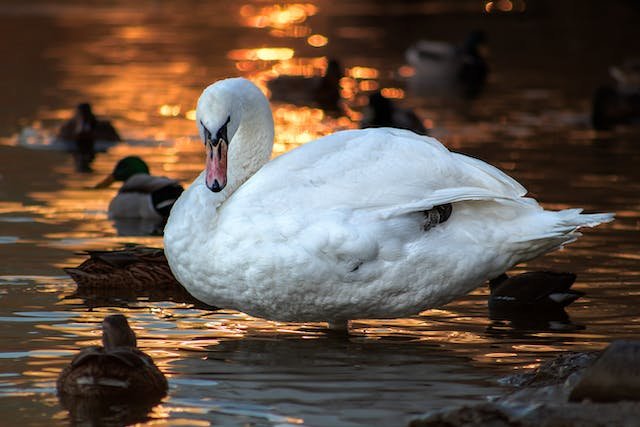
Ducks require a balanced diet to maintain their health and energy levels. While all nutrients are important, some essential ones that ducks need include protein, carbohydrates, fats, vitamins, and minerals.
Protein is crucial for proper growth and development in ducks. In the water, they can obtain protein from insects, small fish, and crustaceans.
Carbohydrates provide ducks with the energy they need to swim, dive and fly. They can get carbohydrates from both plants and animals in the water.
Fats are essential for maintaining healthy feathers, which are crucial for insulation and waterproofing in ducks. This is especially important during colder months when water temperatures drop.
Vitamins and minerals also play a vital role in duck health. These nutrients help support various bodily functions, including digestion, vision, and immune system.
How does duck diet change across seasons and habitats?
As mentioned earlier, ducks are opportunistic feeders and will eat whatever is available. This means that their diet can vary depending on their location and the time of year.
In the warmer months, when bodies of water are abundant with plants and insects, ducks will primarily feed on these food sources. However, during colder months when these resources may be scarce or covered in ice, ducks may turn to other sources such as small fish and crustaceans.
Habitat can also play a role in determining what ducks eat. For example, migratory ducks that travel long distances may have access to different food sources in their various habitats throughout the year.
The Importance of Water Quality for Duck’s Diet
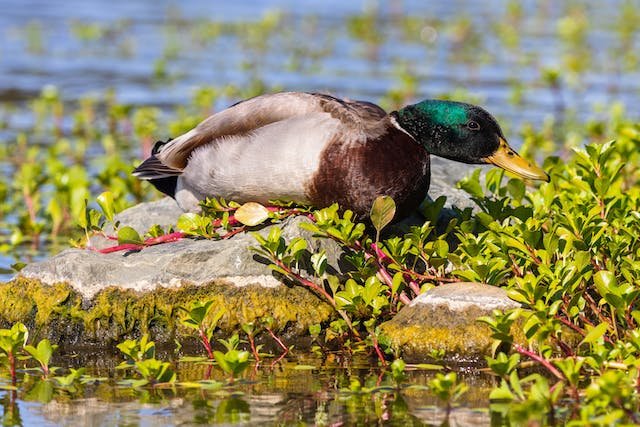
It’s important to note that the quality of water can greatly impact what ducks eat in the water. Polluted or contaminated water can lead to a decrease in the availability of food sources for ducks, making it difficult for them to obtain necessary nutrients.
Furthermore, if a body of water is contaminated with harmful substances, this can also directly harm ducks and their ability to find and consume food. Therefore, it is crucial to maintain clean and healthy bodies of water for the well-being of ducks and their diets.
How do baby ducklings meet their dietary needs
Baby ducklings have slightly different dietary needs than adult ducks. While they also require protein, carbohydrates, fats, vitamins, and minerals, their main source of food is typically provided by their mother.
During the first few weeks of life, baby ducklings will consume a diet primarily consisting of high-protein insects and small aquatic animals that their mother has caught for them. As they grow and become more independent, they will start to forage for food on their own, mimicking the eating habits of adult ducks. It’s important for mother ducks to lead by example and teach their ducklings what is safe and appropriate to eat in their environment.
What Is The Natural Diet Of Ducks?
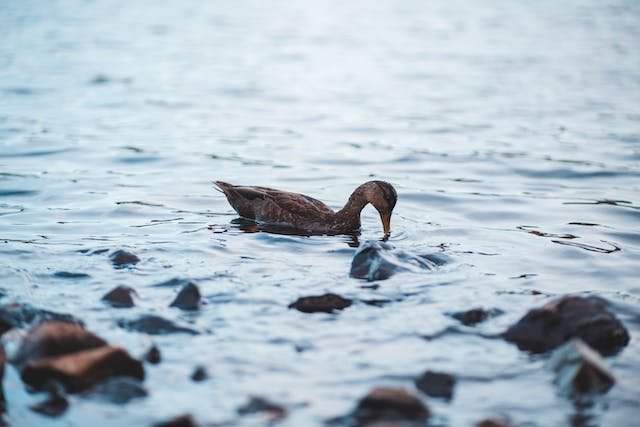
While they are omnivores by nature, wild ducks eat both plants and animals. Though certain species will graze in fields and even residential areas, they locate most of their food in and around bodies of water.
The diets and foraging strategies of various species vary; they can filter feed, graze outside on dry land, or hunt microscopic organisms at the bottom of deeper waters. As a result, different duck species can coexist peacefully without posing a threat to one another.
What Do Ducks Eat In The Water? Healthy foods to feed ducks:
Ducks depend on aquatic vegetation as their primary food source. Dabbling ducks can be upended to feed on submerged plants or they can feed on algae and floating vegetation. Ducks that dive can also descend to feed on rooted plants that are growing farther down the water column.
Not all of the food that wild ducks eat is aquatic. In addition, they will nibble on roots and tubers that are growing close to their wet habitat, graze on grass, and eat berries.
Final Thoughts:
Ducks have evolved to eating a wide range of foods, both in their natural environments and in the changed urban environment. Each species has succeeded in carving out a place for itself without displacing the other waterfowl that share its surroundings, whether they are deep divers or shallow dabbling ducks.
It’s amazing to watch wild ducks eat, especially when you see them side by side foraging—dabbling, diving, and straining. It can also be a great experience to feed tame ducks, but please feed our feathered companions only a balanced, healthy diet.
Read Also: Do Hummingbirds Eat Bees?

